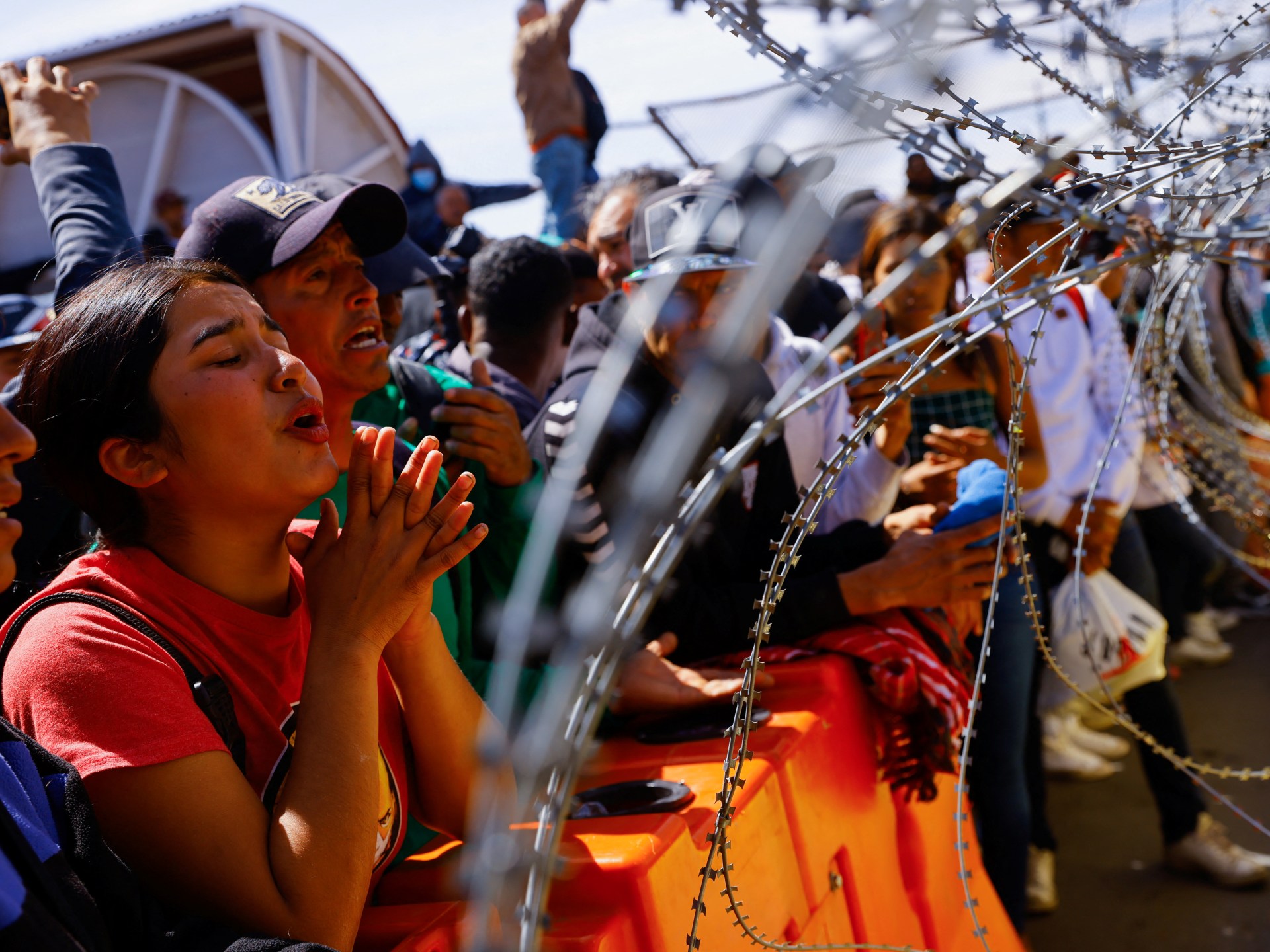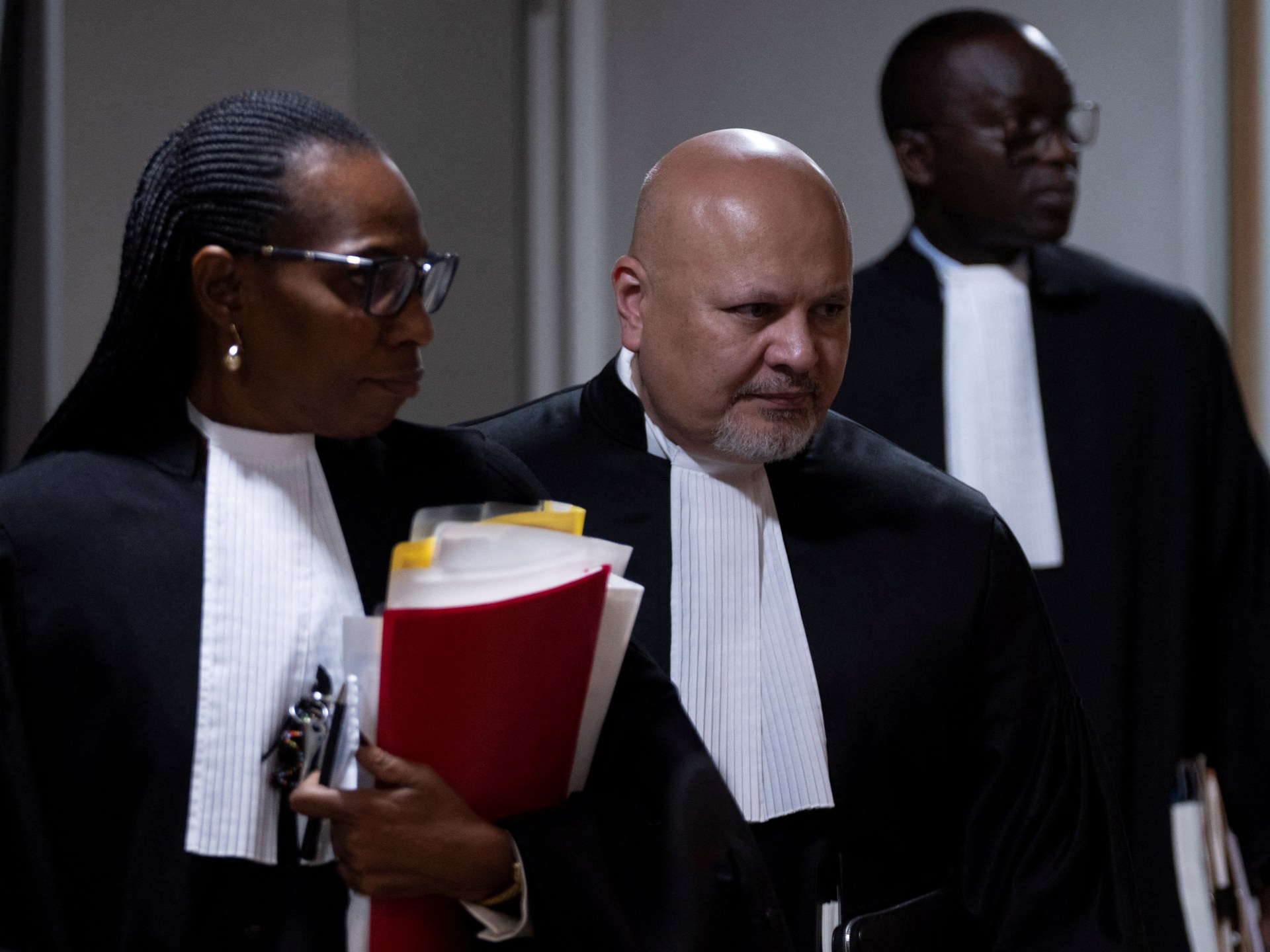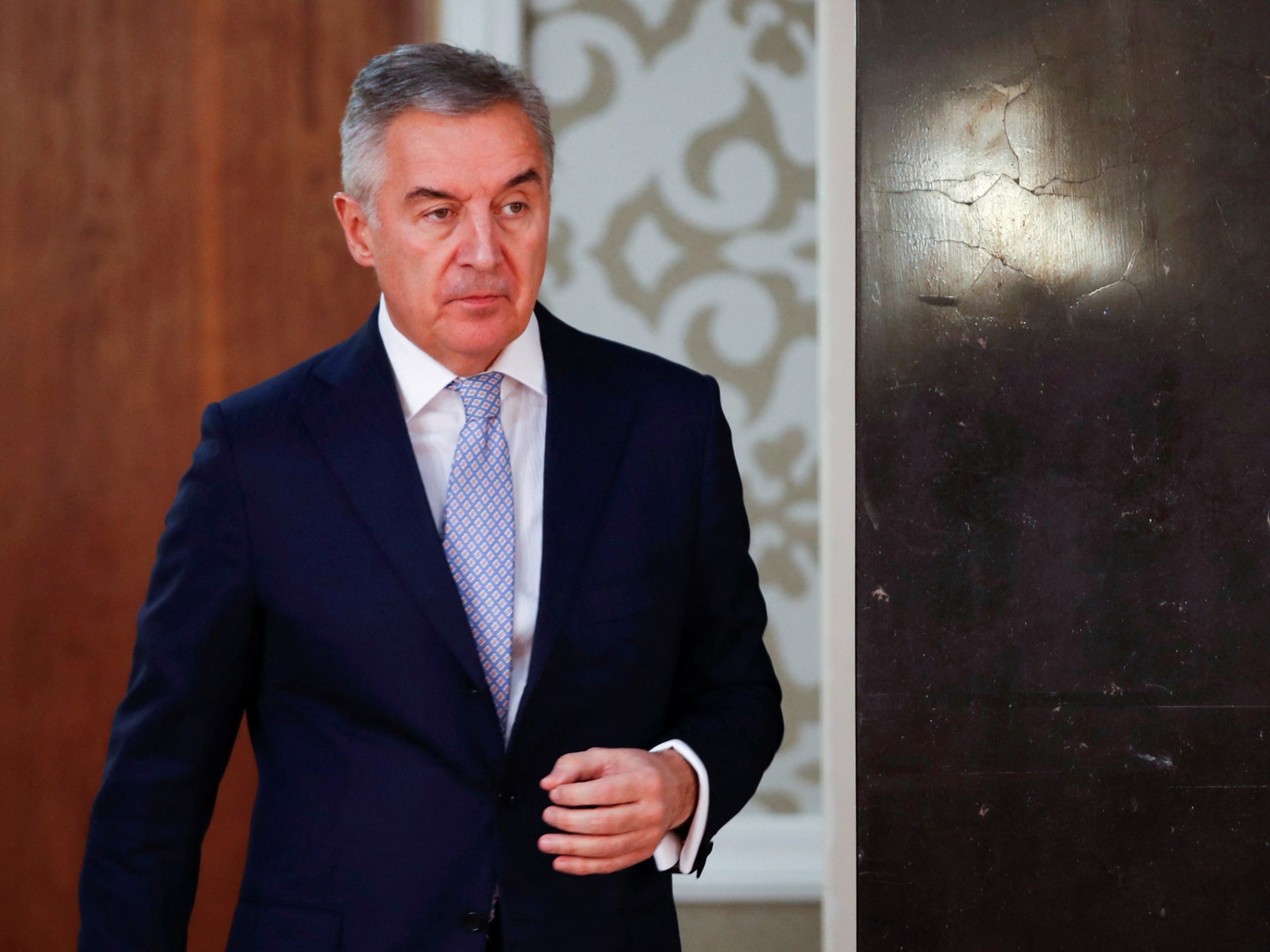US plans to send 1,500 soldiers to Mexico border: Reports | US-Mexico Border News
The administration of US President Joe Biden plans to send 1,500 soldiers to the United States border with Mexico as the country prepares for the lifting of contentious, pandemic-era restrictions later this month, US officials have said.
Citing four unnamed US officials, the Associated Press news agency reported on Tuesday that the troops would assist with administrative tasks at the border, freeing up other agencies to focus on enforcement operations linked to the end of Title 42.
The Reuters news agency and several US news outlets also reported on the troop deployment, which has not been confirmed by the Biden administration.
“This will absolutely send message of militarizing the border to deter migrants,” Gregory Chen, director of government relations at the American Immigration Lawyers Association (AILA), said on Twitter, criticising the plan.
The controversial Title 42 policy, first imposed by former President Donald Trump at the height of the COVID-19 crisis in March 2020, has allowed US authorities to rapidly expel asylum seekers who arrive at the border in search of protection.
It is set to expire on May 11, and Washington is preparing for an anticipated uptick in people attempting to seek asylum at the US-Mexico border. Biden, who is running for re-election in 2024, has faced criticism from Republicans over increased arrivals at the frontier.
Citing the US officials, the Associated Press reported that the US military personnel sent to the border will do data entry, warehouse support and other administrative tasks so that US Customs and Border Protection can focus on fieldwork.
The troops will not do law enforcement work and will be sent down for roughly 90 days, though their presence can be extended if necessary, said the US officials, who spoke to AP on condition of anonymity because they were not authorised to speak publicly.
It is unclear when the troops would be deployed, the news agency added.
The force would add to an ongoing deployment of about 2,500 National Guard troops.
Asked about the US troop deployment, Mexican President Andres Manuel Lopez Obrador told reporters that the US is a sovereign nation and that Mexico respects its decisions.
Restrictions on asylum
The Biden administration has been trying to stem the flow of asylum seekers to its southern border for months, with Vice President Kamala Harris telling would-be migrants in 2021, “Do not come.”
In late April, Washington announced that it would open migration centres in several Latin American countries where people could apply for entry into the US away from the border.
However, the administration also stated that it would expedite deportations of people, including families, seeking to enter the US to petition for asylum. Under the new measures, those caught crossing irregularly would also be banned from re-entry for five years.
While Biden was critical of the anti-immigrant policies and rhetoric of the Trump administration, the Democratic president has been criticised by immigrant rights groups for keeping many of those policies in place and enacting further restrictions to asylum during his time in office.
Restrictive immigration policies, when paired with narrow pathways to legal entry into the US, have also been blamed for pushing migrants into dangerous situations that leave them vulnerable to abuse.
After a fire at a migrant detention centre in the Mexican border city of Ciudad Juarez killed at least 39 people, immigrant rights advocates blamed the tragedy on US immigration policies.
“Unfortunately, as the United States takes more extreme steps to close the border to asylum seekers, these types of tragedies will likely become more common,” Victoria Neilson, supervising lawyer at the National Immigration Project, a legal advocacy group, told Al Jazeera at the time.
Most of those killed were from Guatemala, while other victims hailed from Honduras, El Salvador, Venezuela, Colombia and Ecuador. People are fleeing those countries due to widespread violence, poverty and political instability.




